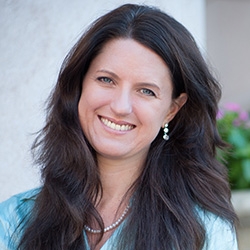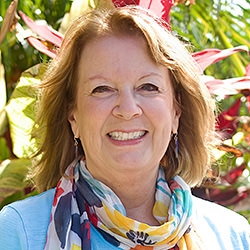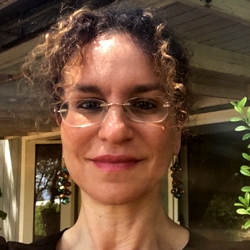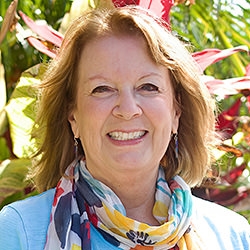

Search Results: experiencing
-
When it comes to self-sabotage and self-limitation, what's happening when we make ourselves smaller than we are? And what is it with the crippling experience we suffer when we exceed our own self-imposed limitations? What unconscious needs is your nervous system meeting by remaining small? Read on for the insights of Beatrice Beebe's research on biological imperatives, emotional language, and emotional limitations.
-
When supporting someone with less privilege, first check with them how you can support. If you're reacting more strongly to their undesirable experience than they are, this then shifts the dynamic so that they're setting aside what they want to attend to your feelings and needs - this may become work that they didn't sign up for. Read on for what to do instead to support more equity.
-
Someone may give more weight to your ideas, decisions, and directives based on your experience and what you've learned. This could influence them to project their ideals, fears, hopes, and more onto you. In this case, you can help transform this and contribute to their connection to their own agency, authenticity, and self-trust -- while supporting their ability to learn from what you have to offer.
-
Falling in love is quite an experience, especially when it comes to that moment of saying 'I love you'. So what happens once you're in a relationship but still need to express the way you feel? Sometimes people feel like just saying 'I love you' is too impersonal or unspecific. So in this Life Hack, we give you some tips on how Nonviolent Communication can help set the mood with your loved ones.
-
With this exercise you'll choose an experience you had with someone where your needs were not met. You'll work with the related feelings, judgements, values, and feeling the fullness of the need even though it was not met, plus any sadness that may arise.
-
Enmeshment refers to confusion about who is responsible for what. This lack of clear boundaries results in attempts to manage the other person's experience as a substitute for managing your own. When you think you're contributing to another person, but you're actually acting from enmeshment, there's inner tension and contraction. Read on for 16 common signs of enmeshment so that you can know when to pause and connect to your needs.
-
When someone stimulates your pain, you may want them to express care and empathy for your experience. If they're unwilling, you may resent it. You may forget the power of many strategies to meet a need, and you lose your agency. This can lead to reactive habits in you -- such as pleading, demanding, or attacking. Here are reasons you may not be getting an apology or empathy, and what options you have in moving forward.
-
Research shows that couples with a secure bond experience arguments that are shorter, lower in intensity, and easier to recover from. Building and keeping a secure bond with your partner requires mindfulness and consistency: respond to what’s needed or supportive in a given moment; give them your full attention and affection in a spacious greeting; conveying care, consideration, and that they matter and are seen.
-
When you hear yourself saying that you are being abandoned, turn toward your experience with compassion and curiosity. Check in with your interpretations, feelings, and needs. Reach out for support. This can help dissolve feelings of reactivity and allow perspective. You are then able to make requests of yourself about what you’d like to do differently in the future to honor for your needs when making a choice.
-
Just as setting boundaries is beneficial to relationships, NOT setting boundaries can come at a big cost. Listen to Yvetter Erasmus share her experience with boundary setting.
-
Have you ever found yourself passing judgment on a co-worker's seemingly disorganized desk? Mary Mackenzie's experience sheds light on the fact that she and her colleague with the "messy desk" shared a common need for order. Recognizing that our needs align can lead to a softening of judgments, creating space for connection, understanding, and harmony.
-
When you experience an emotion, your body send a message to your brain that lights up the amygdala. Then what? Listen as Sarah Peyton demonstrates the NVC practice of Naming the Feeling and Need, which calms the amygdala and enables you to move into relational space.
-
We each have the power to be the creator of our own inner experience, no matter what is going on externally. The moment you imply wrongness on others, you give power to them. In this excerpt, Aya Caspi shows that the more self-responsibility you take, the more freedom you will have.  
-
What can we do when someone tells us we're contributing to a pattern we're genuinely not seeing (nor experiencing)? What makes these patterns visible to some people but not others? This article addresses these things by talking about what to factor in when receiving feedback; handling feedback; responding relationally; paying attention to social location; considering impact; plus, broadening our perspective to bring in greater care and awareness.
-
Ask the Trainer: Can NVC transform group conflict? Trainer shares stories and answers the question.
-
It is the first day of December and it seems to me as if 2023 went by with a flash. I have felt deep despair about the growing division between people and the devastating impact it has had on human beings, all life in fact, including our planet. And, I have also experienced many moments of joy and satisfaction this year.
-
- Explore the complexities of how we can care for all of life using NVC
- See the role that power plays in relation to observations, feelings, needs, and requests
- Learn how to support people from many backgrounds in being able to apply NVC
- Discern how to engage with these vast topics as we learn and share NVC
-
How do we live each and every day from the “living energy of needs” – with the unimpeded fullness of life’s energies flowing through us, regardless of the conflicts or life circumstances we may be experiencing? Through developing deep self-compassion. How can we experience our inner world from a place of utter and total compassion? When we practice compassionate self-care, we create an inner spaciousness that allows our life’s energies to flow. In that spaciousness both healing and inner transformation occurs. Robert’s work explores the interweaving of two co-intentions—to live life from the fullness of the “beauty of needs” and to approach every experience with deep compassion.
-
- Discover what is yours to do in response to our global crises
- Weave nonviolence more deeply into how you live and lead
- Receive ongoing support in how to be effective and alive while pursuing your highest goals
- Increase your capacity to face and mourn current reality as a source of greater choice and energy
- Be a part of transforming the legacy of scarcity, separation, and powerlessness into a livable future
-
Integrating a full living involves grief/mourning and gratitude. Here we'll more deeply integrate inner and outer dimensions of gratitude and grief. In any experience there's the outer aspect, an event that occurs in life. And there's the inner response to the outer event. When we judge the outer positively or negatively we're in tension or resistance to our experience. Here we'll explore a more integrated mode of experiencing.

Quick Links
Subscription Preferences
Stay In Touch!
Looking for ways to keep up with NVC Academy news, get special offers, free resources, or words of inspiration? Here are five ways to stay engaged:




















